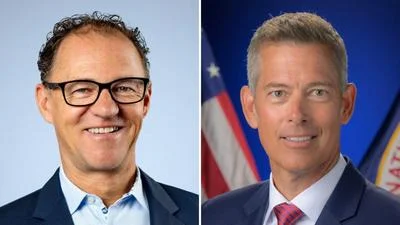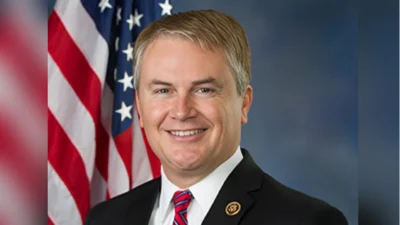Dear Ambassador Zoellick:
In a few weeks, the United States will host the final scheduled negotiating round for theU.S.-Central America Free Trade Agreement (CAFTA). Under the fast-track proceduresadopted in the Trade Act of 2002, Congress will soon be called upon to vote for or againstimplementing legislation for the CAFTA, but will not have the opportunity to modify theunderlying agreement. It is therefore critical that the CAFTA agreement you conclude nextmonth include provisions that will win broad support in Congress.
In particular, we believe that strong environmental provisions are critical toCongressional approval of the CAFTA. We were disappointed earlier this year when you tabledfor CAFTA the same environmental text used in the Singapore and Chile FTAs. Theseprovisions are not sufficient for the CAFTA countries, where environmental standards andenforcement capacity are lower, democratic institutions are more fragile, and sustainabledevelopment concerns are more critical. Indeed, the Singapore and Chile environment chaptersare a significant step back from the provisions included in the NAFTA ten years ago.We were therefore pleased to learn that you will soon be proposing new environment textto the CAFTA countries. As you revise the U.S. position, we strongly urge you to adopt thefollowing guidelines:
First, the CAFTA environment chapter must be at least as strong as the environmentalprovisions in NAFTA. That means including the citizen petition provisions that were omittedfrom the Singapore and Chile FTAs so that citizens can challenge a CAFTA government’sfailure to effectively enforce environmental laws before a neutral, internationa l, and non-politicalbody. The chapter should also include NAFTA’s guarantee that trade commitments cannot beused to weaken commitments under multilateral environmental agreements.
Second, CAFTA’s environment provisions must be “Chile and Singapore-plus." One does not fit all. The pervasive weaknesses in environmental standards and enforcement inCentral America warrant a much more robust cooperation agenda and more meaningfulprovisions on corporate stewardship. The U.S. and CAFTA countries must commit to formulatea long-term strategy to improve environmental conditions and enforcement, provide dedicatedfunding over the agreement’s 12-15 year phase- in period, commit to independent and objectivemonitoring of progress toward meeting established benchmarks, and build in incentives thatreward higher standards.
Third, CAFTA must reflect Congress’s negotiating priorities set out in TPA. TPAexpressly instructs the President to make sure that FTAs include an appellate mechanism forinvestor-state disputes. In the Singapore and Chile FTAs, the parties postponed a decision onwhat kind of mechanism might be necessary. Omitting an appellate mechanism from CAFTA isa bad precedent for FTAA and future regional agreements planned in Asia and the Middle East.Moreover, it would certainly lead Congress to question whether TPA requirements are beingflouted.
We urge you to take full advantage of the historic opportunity that CAFTA presents toshow that liberalized trade, sustainable development, and environmental protection can bemutually supportive goals. If that opportunity is squandered, it will weigh heavily in our voteson implementation of the CAFTA.
We look forward to working with you on these issues.
Sincerely,
Max Baucus Dianne Feinstein Maria Cantwell Tom Carper Patty Murray Frank Lautenberg Olympia Snowe Jim Jeffords Joe Biden Evan Bayh Jeff Bingaman Tom Harkin Patrick Leahy Mark Pryor Ron Wyden Jon Corzine Barbara Boxer John Kerry Herb Kohl Charles Schumer Joe Lieberman









